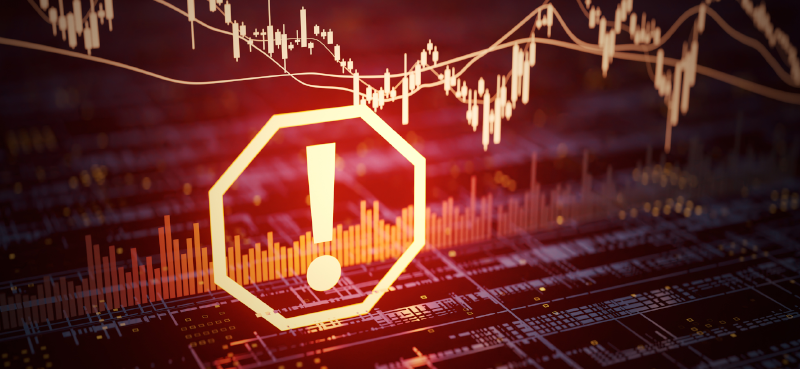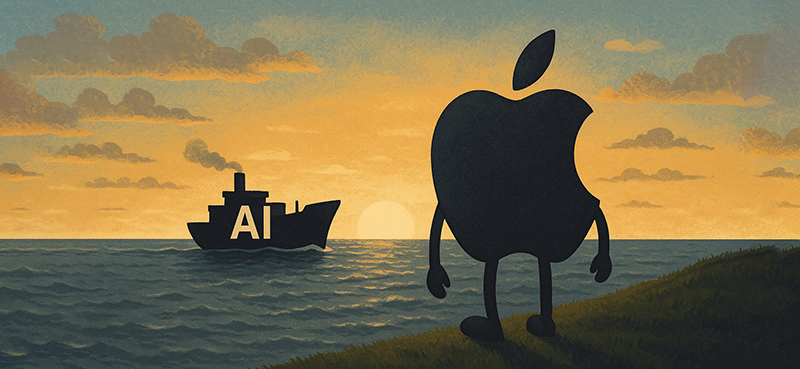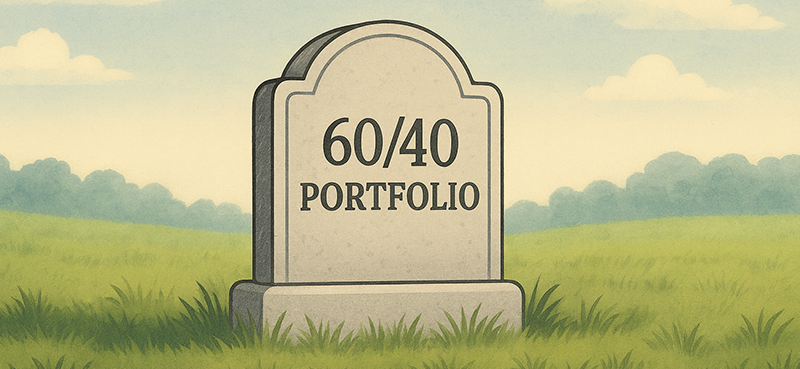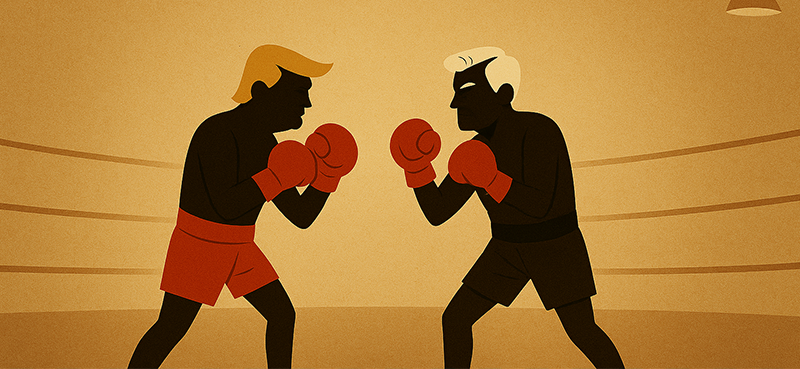Frank Curzio
Apple is flashing major warning signs
Happy New Year!
I kick off today’s show with a fun gambling tip I received while attending a college football game… and how it highlights some glaring issues with the college football playoffs.
The stock market started 2024 on a down note, with the Nasdaq dropping 1.5% yesterday. I put the move into perspective… and explain why the “Magnificent 7” won’t lead the market this year.
The market remains incredibly dangerous. I highlight some of the major risks I’m seeing across sectors, from housing to banking… as well as a couple of big geopolitical risks.
Next, I explain why I’m shocked at Apple’s (AAPL) recent surge… why it’s uniquely vulnerable to one of the geopolitical risks I mentioned above… and why investors should be incredibly cautious on this market darling going forward.
Finally, I reveal one sector I’m particularly bullish on for 2024. (Members of Curzio Venture Opportunities will receive one of my favorite ways to play it later this week. Get the recommendation as soon as it’s published.)
Wall Street Unplugged | 1102
Apple is flashing major warning signs
This transcript was automatically generated.
Announcer: Wall Street Unplugged looks beyond the regular headlines heard on mainstream financial media to bring you unscripted interviews and breaking commentary direct from Wall Street right to you on Main Street.
Frank Curzio: How’s it going out there? It’s July 3rd, 2024.
I’m Frank Curzio. This is the Wall Street Unplugged podcast where I break down the headlines and tell you what’s really moving these markets.
Hope all of you had a great New year holiday and time with the family.
Have some fun.
’cause now it’s back to work.
It’s gonna get pretty crazy.
And you get the Consumer Electronics Show, which I’m going to next week in Vegas.
That’s all of the largest technology companies, small technology companies globally.
Probably about 3000 companies are gonna be there, unveiled their new products for 2024.
You got the JPMorgan Healthcare Conference, lot of biotech stuff going on and announcements.
So the first couple weeks gonna be crazy.
Lots of conferences going on of ideas, but overall, again, hopefully you guys had a great new year.
Watched some college football.
Congratulations to Michigan fans.
Wow, what a game against Alabama.
Interesting.
I went to the G Bowl, quick story and my neighbor had it sponsors, his company’s a sponsor of the Gator Bowl and it was Clemson against Kentucky.
And I was sitting next to, someone who I just met and his kids go to Florida State and he was telling me, he said, just pound in Georgia, put everything you can on Georgia.
’cause he said that 20 people, I think it was the day before the game, so this is the day before, I think it was, he told me that 20 people, at least 20 people who are on that team scholarships were not playing.
Uh, and I think there was only, like, the news only reported like a few people and it turned out to be something like 30.
So basically they, they quit the game.
They didn’t wanna go into that game.
And it makes sense because why get hurt, especially if you go in the NFL, but everything going on Florida State and not making a championship or a college football playoff, having, you know, power five conference and stuff and having an undefeated season.
But sure enough, Georgia, I think where they win like 66 to three or something like that.
But it’s just incredible.
They gotta do something with the bowls and the transport.
How do they have the transporter open before the season’s over? I have no idea.
I mean, holy cow.
It makes every bowl useless ’cause no one’s really gonna play.
Anyway.
Anyway, congratulations to Michigan.
Washington should be a really good game.
But let’s talk about the markets here because it’s an interesting start to, to 2024 where the NASDAQ decline 1.6 yesterday.
So it’s the largest decline that started a year since 2016.
And it’s trading down again today as I’m taping this thes S&P 500 also fell yesterday, which should come as a massive surprise because I thought stocks go up every single week.
That’s what they’ve been doing lately.
Every single week.
Every single week.
It’s not every single week.
Let’s put in perspective, it’s nine straight weeks.
We saw positive gains heading into the new year.
So putting that in perspective, we rarely see that.
Okay, since 1926, the S&P 500 or the SP index was created.
There’s only been 13 times.
Remember 1926, almost in a century.
It’s only 13 times at the s and p saw nine straight weeks of gains.
And the last time this happened was the end of 2003 into like the first week, I think in, in 2004, long time ago.
So when I look at what happened, I wanted to go back and look at some stats to see, well, what happened last time? You know, we had nine straight weeks going in and, and what happens to the market afterwards? And it’s kind of like the same period right into, you know, almost just a week off from 2004 to today.
So the SB finished higher that year, 9% in 2004, which again it 2003 it was like, you know, the, the months leading in month and a half and then like, I think it was a week or two into 2004, which was a nine week consecutive street.
But back then, when you look at the market, this P 500 is trading at a 22 pe, not forward just a 22 PE.
Today we are at 26 times.
Now what does it mean forward? Forward is based on what your earnings gonna be in the estimates over the next This is just what the earnings were the past 12 months, right? That’s a fixed number.
The forward is a guesstimate based on the estimates that a company gives out.
The analysts are gonna estimate what the company’s gonna earn for the year.
So these are not forward.
So the difference between 22 and 26, ah, that’s not really a big deal.
It actually is.
It’s an 18% difference.
So you could say the market was 18% more expensive compared to 2004, but back then at the beginning of 2004, you’ll at GDP grew to 3.8% in 2004 and GDP is expected to grow.
And I looked at the average forecast, I think it’s 1.4% and you’ll get a conference boards usually pretty good.
They’re expected expecting sub 1% GDP growth for 2024.
Sounds crazy since last quarter, what was it? Unemployment rate was close to 6% to end 2003.
Remember back then the markets still s hungover.com crash for 2000.
But unemployment peaked 2003 and then started going lower.
So it fell from near 6% to 5.5% 2004 then to 5.1% 2005.
But it was trending lower, lower, lower.
As the economy started to grow here, we’re not seeing the economy grow and unemployment is expected to trend much, much higher from here.
The fed’s doing everything in its power.
That’s why keeping interest rates high because that’s why they’re not lowering ’em a lot quicker is ’cause the unemployment rate is still extremely low.
Where are we? 3.7%.
We’re looking for it to go much higher.
Well above 4%.
The Fed would probably like to see it at four point half percent are higher, to maintain a downward trend in inflation.
That’s what they’re hoping for, but they’re not seeing it.
That’s why they’re keeping rates steadily high, even though they should be actually cutting based on where rates and inflation are right now, at the end of 2003, the Fed funds rate was just 1%.
This is after a series O of rate cuts starting 2001.
And then I think they had one in 2002, maybe one in 2003, mid 2003.
Okay, so we’ll look at the Fed funds rate was 1% back then in 2004.
We’re over 5% today.
Totally different market conditions.
Inflation was just 1.7% in 2004.
Today it’s over 3%.
So you can’t really compare markets and just, you’ll see stats and that’s why I love really looking deep into the numbers.
’cause you could interpret ’em however you want.
You could say, wow, last time this happened and, and s and p went up in nine straight weeks.
You know, heading into a year was 2004 and the market went up 9%, but the conditions were really different.
Were, were totally different back then.
Now you’re coming off of a, a terrible period and now you’re seeing like this bottoming out and explosion growth where 2004, later 2004 they started actually raising rates.
It’s totally different this time around.
I didn’t get to to deficits or anything.
34 trillion.
We are in deficits, which again, you don’t have to worry about de dollarization or anything happening anytime soon, but, but it’s, you know, a trillion dollars.
Now we’re paying just an interest expense on that debt and now it’s noticeable.
Now it’s a factor, it’s a big factor.
I mean, it could lead to, to cutting budgets in when It’s a big deal.
I mean, how are we gonna get our budgets in line? Because every single time that we’ve seen this, you know, when you see those, those deficits go higher.
It, it wasn’t when unemployment was at, was under 4%, right? ’cause that means you’re getting more revenue and more people working, right? And those tax receipts are coming in and economy’s supposed to be doing better.
We’ve never seen this type of market.
Unemployment is low and deficits will continue to rise.
Usually you’re spending to grow the economy.
So our government’s all outta whack and we know that.
So totally different timelines and different factors.
But again, it’s nice to say, well, last time this happened, But let’s put all this in perspective and I want you to pay close attention, especially if you’re bullish on equities for 2024, which almost every analyst that I saw on CBC of the past two weeks is everybody is bullish, including all but three of the 19 major investment firms who put out their S&P 500 forecast for 2024.
So I say 19 of the major investment firms talking Goldman , Citi, bank of America, Barclays, Ecor, Oppenheimer.
But outta those 19, only three, three Morgan Stanley, Cantor and JPMorgan see the S&P 500 declining by more than 5% for 2024.
And JPMorgan’s actually forecasting a 12% decline in the S&P. Now, if you are bullish on equities, here’s what you need to know and that’s fine if you are, I was very cautious on equities in 2013 outside of late October, early November.
And, and the whole push with, again, just from a trading perspective, if you’re looking it, it, it just, you were gonna see a rally, a rip your face off rally that we really participated in.
But for most 2023, especially early on, I was bearish, we are still along a lot of positions of portfolio just saying, Hey, protect yourself a little bit.
Buy puts, you know, it’s just a very crazy market.
And you’re gonna see right now why it’s still one of the most dangerous markets I’ve seen in 30 years.
’cause it’s not COVID where I’m getting outta the market.
Holy cow, I don’t know what’s going on.
It’s not the credit crisis, it ha it’s just gonna blow up the whole financial system.
Let me get out.
Okay? This is a market where it’s, it, it’s very expensive.
A lot of things don’t make sense.
You didn’t see earnings growth last year and yet you are forced to go into the market or you’re going to miss out and buy stocks at extremely high valuations.
And then we finish the year at nine straight weeks of increases.
So here it’s okay.
What you need to know if you’re bull inequities and or here’s better way to say this, is here’s what’s being priced into equity.
Since we all know the market is a forward-looking mechanism, meaning S&P 500 is trading on what is expected to happen over the next three to six months.
So here it is, right now we are trading at 20 times forward earnings.
That is a huge, huge growth.
Multiple considering we’re gonna see a meaningful slowdown in GDP in 2024, maybe below 1%.
Also we’re trained significantly above the 10 year average of 17.5%.
But if you look at those past 10 years, for most of those years, rates were very, very, very, very low.
We averaged probably 1% or less.
I mean we were zero and then we went a little bit higher past couple years, but we averaged less than 1%.
Now we’re at 5%.
We’re extremely trading at extremely, extremely high growth multiple.
The market is assuming, it’s assuming at least six rate cuts in 2024.
That’s what’s projected, that’s what the market is anticipating.
Why we’re trading at this level.
It’s assuming earnings are gonna grow by 12%.
Again, an economic environment that’s expected to slow considerably from last year into this year.
It’s assuming sales will grow over 5%, which they grew, what, 2% over the past year.
It’s assuming that there’s a zero, absolute zero chance of a recession.
And I could tell you if GDP forecast, again, the average is probably 1.4%, there’s a lot of a few predicting lower than that.
I think the highest might be 2.1.
I think Goldman was there in November.
I think they lowered their estimates.
But if you’re telling me that you are gonna see a full year of economic growth below 1%, you can’t tell me one of those quarters are not gonna be negative with the chance of another one being negative, we’re pricing it as zero chance of a recession.
Zero.
Again, there’s an election year.
I know that there’s never in history been a president who’s been in office that got a second term.
It’s happened four times.
I think the past a hundred since going in was in a recession.
All of them got annihilated going into the election.
So if we’re in a recession, there’s zero chance, unless the election’s stolen or whatever, or whatever you want to conspiracy, whatever, whatever you believe.
But if we’re in a recession, there’s, there’s basically a zero chance unless something black swan, unusual craziness happens that the Democrats will win.
So they can do everything they can to spend to make sure the economy doesn’t fall into recession.
And that could be pressuring the Fed, which every president does, which Biden did for the first time couple weeks ago, right before we had this big pivot with the Fed and Powell, huge pivot.
I mean two weeks ago he is like, no, we’re not even close to rate to to, to lowering rates.
And all of a sudden nothing changed except the data got worse.
The chances for a rate cut by may actually decreased after the data.
And you had power come on into that pivot and say, Hey, you know, we we’re probably gonna start cutting.
It’s also assuming that there’s gonna be little geopolitical risks.
You see what’s happening, waterways, you see what’s happening.
Assuming that Russia, Ukraine is business as usual, no end in sight things’ fine.
Don’t worry about it.
No.
Russia still controls a massive amount of the energy going to Europe.
Europe wants to try to play hardball, but I mean everybody’s getting sick of funding the Ukraine here now.
They’re losing pretty badly right now, which is not reported in the mainstream media.
And it’s also assuming that China won’t invade Taiwan, which I believe is absolutely inevitable it’s going to happen.
I say, Fred, that’s crazy.
No way.
That’s not gonna happen.
I could tell you, did you see the latest news is from yesterday with chipmaker ASML.
It’s a Dutch based company that makes high tech microchips or more specific.
One of the only companies in the world that makes extreme ultraviolet lithography systems, right? So these are essential for smartphones.
EVs, AI, the US pressured Netherlands into cutting their exports of these chips into China.
And China’s pretty p****d.
This files a US restricted Nvidia to re to restrict the imports of its two chips.
If you’re not familiar with them, it’s the a 800 and the H 800 chips.
Okay? Those are the two most powerful chips in the world, essentially building the, the most advanced AI systems.
That’s the one everyone’s paying for.
That’s why they blow out the numbers all the time and the US saying, nope, we’re restricting those chips going to China.
So now China’s being left out at one of the biggest technology revolutions in our lifetime where AI is dominating everything.
And we’re taking a a, you’re seeing our companies and and our country grow tremendously when it comes to AI and we’re limiting growth in China and they’re being left behind.
So basically painting China into a corner, right? Almost forcing them to invade Taiwan.
Now why would they do that? Because it gives ’em control over Taiwan Semiconductor, you know, like this one company, Frank, what’s the big deal? Taiwan Semiconductor produces 90% of the most advanced chips in the world use to power every major technology trend on the planet.
And we’re basically limiting them as much as we can to get the biggest headstart.
What do you think China’s gonna do? What do you think we would do if we were restricted? What do you think if they restricted rare earth Metals and all this stuff and made it so we cannot compete where it’s going to make China a million times stronger And China before last two, three years on its way to becoming one of the biggest economies of the world and now things are absolutely horrible.
You wanna pull up a funny chart or a crazy chart Pull up, you know, one year performance, of China stock market, and US stocks S&P 500 and just look, I mean the chart is, is, you know, gonna go on the film here is, is is massive.
I mean, you gotta see how wide it is.
It’s incredible how much China underperformed, how much the US outperformed.
But China’s not gonna sit on their hands during this.
They can’t, they can’t afford it.
Again, you’re assuming that’s not gonna happen.
This is gonna be nothing, right? So these are all the things that you’re assuming.
So again, all this has to, if you’re bullish, all these have to happen to support the current valuation of stocks.
Now, if we do see some cracks, which could be expected, and again, this is support the current valuations, I’m not talking about what’s gonna push stocks higher.
Maybe that’s the election again, you, you’re gonna, you’re delaying the late penalties on student loans payments, which just kicked in again after three years of spending it.
And you get, you’re gonna have the current president, I don’t care if you’re a Republican or Democrat, they’re gonna do everything they can to make sure the economy’s as strong as possible in spend.
And that’s been the wild card.
That’s been the wild card in the markets for the past couple of years is just massive government spending going to so many different sectors that you couldn’t really anticipate and trillions of dollars that you, you still can’t remove from the system where we’re still seeing inflation 50% up the nor higher than the normal rate trying to get this money outta the system because it’s trillions and trillions and trillions of dollars.
Was it 80, 85% of the all the dollars ever printed were printed in the past couple of years? It’s insane how much money in the printing going on.
They’ll say if we see some cracks and we see cracks in consumer spending, they start pulling back and housing gets worse.
We’re surprised it’s not worse, right? We have, we have a supply problem, but still it’s different.
I’m in Florida, my house has been on the market for four months.
I’ve gotten one offer on it and it’s priced now we load the price, price affection and it’s on an island where home builders can’t build, where the major home builders can’t build.
Where they could build like, you know, 40 house lots or 30 houses and stuff like that.
And, and, and you know, you could build individual homes and stuff.
There’s not a lot of land there.
It’s Amelia Island.
It’s not like this exclusive island.
It’s, it’s, you know, pretty big.
But anyway, the housing market tells what, say we see cracks in regional banks, what’s gonna happen? Well investors for the first time in what, 20 years, they have another option, a wonderful option.
They could earn a 4% risk free by putting their money in government bonds.
So what does that mean for equities in 2024? I mean when I look at the S&P 500 as a whole, right? Because that’s what we look at the market as a whole where you could say S&P 500 had a, had a banner year, it’s up 24% for the year.
I think that’s where it closed.
24% I believe might have been 26% or whatever, but 75% of that was driven by the magnificent seven stocks.
If you didn’t have those, you probably didn’t perform too well.
You might have actually been down on the year or you had a nice ending to the year.
But leading into to I would say November, unless you have exposure to those seven major technology companies, we all know them.
You’re probably underperformed.
So I’m not sure what a S&P 500 will end up, but what I do know is this is gonna be the year of separation.
We are not gonna see all those stocks do great.
We saw every one of ’em do great, you know, whether it’s Apple, Tesla, Amazon, Nvidia, Netflix, Google Meta, right? All those stocks just up, up, up, up, up, up, up.
But they’re not all the same.
And Tesla just came out with results, which are pretty good, better than expected, but their, their margins are still horrible.
Their margins are terrible pricing power, right? They don’t have that pricing power anymore.
Seen a lot of competition into the market even though a lot of ’em said, Hey, we’re gonna slow it down a little bit.
But it’s very expensive to buy EVs.
It is really expensive.
And we’re learning that this isn’t a market that was gonna be, you know, up, up everything was going EVs in, in, in five to seven years.
People don’t want EVs, they don’t like charging.
There’s a huge market for it.
It’s a big market for it.
Maybe 10, 15, maybe 20% of the market.
But that’s probably it.
I mean, I drive a lot.
I drive a ton driving my kids to school.
I’m driving to work.
I’m gonna open up an office near my house, but I drive, you know, an hour and 15 minutes a day.
What am I gonna be charging it a lot? I charge it when I go home, that’s fine.
But when I drive down to Miami from Jacksonville, when I drive down to Palm Beach, you know, I don’t wanna sit there and charge it.
That’s me.
But you’re gonna see separation here.
’cause now you have, you know, Tesla with the margins are really, really tough.
You see a tough economy, a lot of people can’t afford EVs.
You’re looking at Apple Apple’s getting hit right now and it should have got hit a lot further.
I mean, I’ve never seen anything in my life in my life.
No one has.
But you are looking at Apple, which did not grow sales and earnings grew less than a half percent over the last 12 months.
And you watch this company grow its valuation by a trillion dollars.
Holy s**t, how’s that possible? I mean they have some major problems.
One is with China and, and and smartphones, right? And iPhones and iPhone sales.
You’ve seen the 15, you see reports out every Barclay’s just downgraded them.
IPad sales, Mac sales.
And now that downgraded included, hey, we’re probably gonna see slower growth in, in services as more and more companies are fighting the app store and found out that Google pays an absolute fortune to become the, the main browser on iPhones and stuff like that.
But you know, this analyst actually sees their bread and butter, which is a high margin business and those services revenue actually slowing down Apple’s trading at 30 times forward earnings.
A massive growth market multiple where it’s not growing.
You have Nvidia also trading at a huge growth multiple and rightly so with the revenue that it generated and, and and earnings and holy cow and buybacks and everything.
But could they sustain that growth without China? I don’t know.
’cause right now it’s priced from affection.
However, when I look at some of the other names in that magnificent Meta, Google cheap, much cheaper than the other names I just mentioned, growing much faster than the overall market.
Netflix has become the clear winner in streaming.
You’re gonna start to see strong growth from advertising, probably gonna generate a huge amount of cashflow.
Again, it’s just a matter of putting a commercial on.
It’s not like, you know, the expenses for that.
It’s easily, and, and, and talk about scalability.
Holy cow.
And the hard part is getting it down.
They said this is a year that you’re going to see lots and lots of revenue being generated through advertising and and they have the audience and they have people on that site forever.
So it makes sense.
Advertisers are gonna be lined up out the door to freaking advertise for Netflix and they’re gonna charge a fortune for it and get it kinda what Meta does.
And also Google.
So I don’t see all seven doing well.
I think Amazon’s gonna have a great year.
Underperform the markets.
Now they got everything right in terms of retail, in terms of cloud.
I think cloud growth’s gonna gonna be huge next year for them.
And Microsoft kicked their ass, not really kicked their ass, they just took market share.
There’s still the industry leader, right? They’re just, you know, Microsoft had a lot more growth.
But you’re gonna see that growth slow.
And I think for Microsoft more than what you’re gonna see for Amazon.
I think Amazon has a shot to take market share from, from Microsoft this year when it comes to cloud.
But you’re gonna see a separation in stocks within different sectors.
And that’s why it’s a stock pickers market.
Also focused on sectors that didn’t perform well in 2023.
I don’t know about oil.
If you’re expecting economy to come down, you’re gonna be, you know, you think you could pick and choose and a lot of those names are trading at huge discounts and still seeing growth.
’cause they could make money at $70 a barrel, even 65 $6 a barrel, where that, that used to be the average cost to produce.
Now it’s, you know, what is it? I think 55, 60 i i is offshore now where that used to be 85, like 10 years ago, 90 bucks.
But I think the better sector one is healthcare, biotech in particular.
And Staples and Staples had a rough year.
But look what they went through.
They cut costs significantly.
The supply chains are in much, much better shape.
They’re well positioned to benefit and see margins go a lot higher and easily beat estimates after seeing that slow down, which is a tough year for them.
The healthcare, again, in particular, I like biotech and I’m expecting a really big year, not in all biotech, but many names are still down 6% plus from their 2021 highs, including names that are generating revenue.
So if you look, you know, small caps, past $500 million to maybe the mid-cap level of 10 billion.
There are unbelievable names.
I mean names that are generating revenue, generating cash flow and have a great pipeline with drugs already.
FDA a approved meant now they’re going into different markets, their stock has gotten annihilated.
So they lowered costs, they raised money already.
I mean there was so much leverage in this industry.
Nobody talks about massive, massive, massive amount of leverage.
Massive amount.
All the warrants going on, all the deals behind the scenes and stuff like that.
Holy cow dominated by by just a few firms all got annihilated.
I mean some stocks I thought were great at, you know, there were a hundred that went to 60 and 50 are now at 20, Expected a lot of m and a activity in the sector, especially just seeing slower growth among the major healthcare companies.
This is the way to to, to capture growth by buying companies with great pipelines that are dirt cheap right now.
Much, much cheaper than if you pay for them, you’re gonna be paying a 50% discount compared to if you wanted to buy them in, in 20 20, 20 21.
In fact, that’s where my next Curzio Venture Opportunities to pick is coming out of.
It’s coming out tomorrow, but it’s coming from that sector.
The small cap biotech names down from $70 a share early this year to $25.
It’s generating revenue, great pipeline, great management team.
It’s a name I think could easily go to $75 to a hundred dollars by the end of this year.
But all the negatives are priced in and, and now they got everything right? And that’s what you’re looking for.
Like, you know, when you’re a company and it’s a s****y year, a s****y 18 months, what are you doing? You’re restructuring, you’re, you’re selling off weak divisions or factories and you know, you’re trying to get your margins up and you’re cutting costs dramatically.
And now you’re putting yourself in a position because it’s been so bad and people think, okay, since it’s bad, the past 18 months is gonna be bad forever.
No, this is what corporations do, this is what management teams do.
This is what they get paid to do.
They’re gonna have ups and downs.
It’s how do you fix those problems? The Walmarts and the Amazons were able to fix them right away.
They’re in supply chain concerns and COVID, they’re brilliant companies, but a lot of others.
It takes a lot to get rid of inventory, take care of supply chain and just again, have your company structure where now in position we’re much leaner.
Now we’re gonna see earnings grow.
Now if we can get sales back up, really focus, holy cow, you’re gonna see that stock absolutely surge.
And that’s where we are with biotech right now.
But 2024, it’s gonna be a stock pickers year.
Focus on the companies with strong management teams.
Companies have solid cash flow, which means they’re probably buying back their stock and maybe increasing their dividend, which is huge.
Buybacks are gonna be a big thing in 2024.
What GM did, it changed the whole perception of that company just by saying, Hey, we’re not focusing on EVs as much anymore.
We’re not gonna spend 5 billion, 7 billion, 10 billion, $50 billion on this freaking trend that we thought was fantastic three years ago.
We’re gonna take that money and buy back our stock.
And the perception of that company has changed dramatically.
And people are watching, just like they watched Meta in 2022, they got annihilated, it was down 60% and they said, Hey, we cut costs by billions of dollars.
What did all the major technology companies do? They started cutting costs and they’re still cutting costs.
Some of ’em are still laying off employees and said, Hey, that’s the model everybody wants to see.
Kind of like with Disney deal, let’s get into streaming because Netflix has a, carries a 50 times multiple and we’re trading at at, at, you know, 18 times multiple, but it didn’t work out for them.
But you’re gonna follow what’s working on Wall Street and what the street wants to see.
They wanna see buybacks.
You’re gonna see more major companies announce buybacks.
That means that they’re generating lots of cashflow.
They got great balance sheets and it puts ’em in a position, especially to grow their company further.
’cause if the economy does weaken, there’s gonna be a lot of companies, they’re gonna fall sharply and maybe go bankrupt.
And the companies with strong balance sheets are gonna be there to pick up pieces.
It happens in every down cycle ever in existence.
The big players always survive and they buy up and pick up the pieces of all the other growth players that just mismanaged their cash balance.
That’s what you’re gonna see in 2024.
Again, 1% GDP growth.
It’s gonna be unlike what we saw for the past 13 years where growth dominated.
Everything outperformed everything.
But now you have to be careful paying a high premium for growth.
Considering the slowdown.
We’re gonna see not just from the US economy, but from the global economy.
And what does that mean? It’s gonna force a lot of the Fortune 500 companies to cut back on CapEx spending.
That is the biggest driver of growth, is how much companies are spending, how much are they gonna, yeah, they’ll spend on AI and things like that that that they, you know, are gonna enhance productivity.
But other things are gonna cut back sharply on.
If you’re cutting back CapEx, that means you’re not spending a lot and you’re spending money.
That means a lot of companies and that revenue is gonna go lower and lower and lower.
So you see companies cut CapEx, which you are seeing across a lot of the industries right now because they are fearful going forward where we have high interest rates and even though it’s supposed to be cut, we have an economy that’s going to slow and inflation coming down.
They don’t have pricing power.
These management teams are gonna be super conservative and they’re not gonna spend as much, you’ll see the spending increase in AI and certain things, but a lot of the areas are gonna be like, all right, let’s cut back a little bit.
That’s gonna hurt a lot of the growth companies.
And I could tell you if a growth company with a high multiple, they’re going into earnings season and they’re trading at 30 times, 27 times forward earnings and they miss and then they warn, these are names that are gonna fall 15 to 20% in a day, in a day, it’s gonna punch you right in the face.
So be careful ’cause you’re buying growth companies at growth, super growth multiples in a market that’s supposed to slow down and they say it’s election year and I get it means more spending from the government here and there.
You might see that pushing the stocks, but I can’t see the entire S&P 500 doing what it did or all those magnificent seven companies doing what they did last year, especially some of them.
’cause there’s, they, they’re different.
They’re mu, they’re different companies and not all the same companies.
Some of are trading at 30 times earnings, some of ’em are trading at 22 times earnings.
Some of ’em are growing in sales at five, 7%, 10% and earnings at 15%, 20%.
And some of ’em aren’t growing earnings in sales at all, but yet they’re all going up, up, up, up together.
That’s gonna change this year.
You’re not gonna see that there’s gonna be interesting 2024.
I’m gonna cover more of this tomorrow in detail.
Share some ideas in the Wall Street Unplugged Premium podcast.
If you wanna learn more about that or subscribe to podcast in the Dollar Stock Club portfolio for just a dollar, you can go to WSUPremium.com.
That’s WSUPremium.com.
It’s podcast I do with Daniel.
It’s awesome.
But we don’t just talk about the macro part.
We share lots of ideas and put one of those ideas every week into our Dollar Stock Club portfolio and that we’re going to tape tomorrow, which we tape every single Thursday.
So guys, that’s it for me.
Happy New Year.
Thanks so much for listening.
Love you guys.
I’ll see you tomorrow.
Take care.
Announcer: Wall Street Unplugged is produced by Curzio Research, one of the most respected financial media companies in the industry.
The information presented on Wall Street Unplugged is the opinion of its host and guests.
You should not base your investment decisions solely on this broadcast.
Remember, it’s your money, and your responsibility.
























